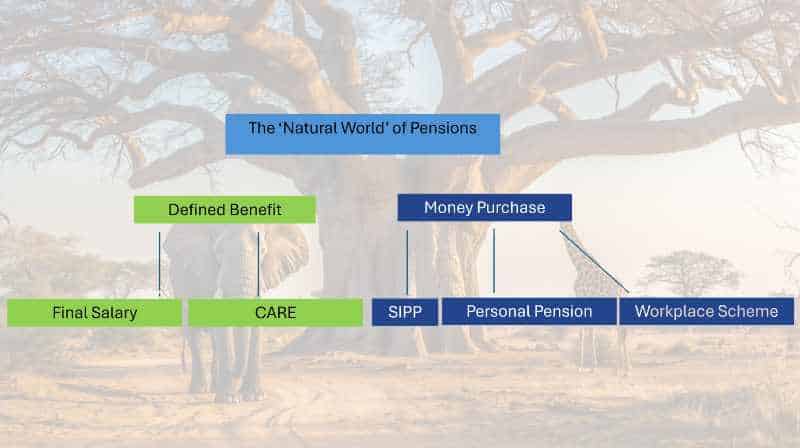
Over the past few weeks, there has been a debate on Twitter amongst a small section of the financial planning community and compliance consultants on the surprisingly thorny issue of ‘Capacity for Loss’. Some might say there are perhaps bigger global causes to debate but there you go.
Capacity for Loss is a test that the financial services regulator, the Financial Conduct Authority (FCA), requires financial advisers and planners to perform on their clients’ pension and investment portfolios to see whether they can survive (in a financial sense) a stock market crash without detriment to their lifestyle. Or, specifically, “their ability to bear losses”.
In other words:
How much can you afford to lose during a stock market crash without your lifestyle being negatively affected?
The Capacity for Loss test is to be used in addition to and in conjunction with a client’s investment objectives and risk tolerances. Risk tolerance is another way of saying the degree to which someone can cope with the ups and downs of stock market investing. Someone with a low-risk tolerance is nervous about stock market investing whereas someone with a high tolerance to risk will be less likely to panic during a stock market fall.
Specifically, the FCA requires advisers to only make investment recommendations “which are suitable for the client and, in particular, in accordance with the client’s risk tolerance and ability to bear losses.”
Never the Twain Shall Meet
What has got the two sides of the profession arguing is differences of opinion on the understanding of investment risk (for a video explaining risk click here). The financial planners say that, whilst investing in global stock markets is inherently risky in the short-term, history teaches us that, over the long-term stock markets grow in value at a greater rate than any other asset class. So, by NOT investing in global stock markets investors are losing the ability to have their wealth grow in excess of rises in the cost of living for their benefit or that of their children and grandchildren. Risk tolerance and capacity is, therefore, they say, a regulatory distraction that blinkers the bigger issue.
The problem, they add, is an educational and behavioural one rather than an affordability one. The greatest mistake that investors make is not investing but panicking during stock market falls thereby creating actual financial losses which, up until that time, where simply falls in value.
Those on the regulatory and compliance side of the fence argue the long-term doesn’t matter if a stock market crash results in an investor losing money they can’t afford to lose and it has a detrimental effect on their ability to, not only pay their essential bills but to also live a lifestyle that might reasonably be expected.
Looking at the Bigger Picture
It might help to consider two different people to understand the concept more fully.
Susie Safehouse
Susie Safehouse is a very nervous investor. She owned some shares a number of years ago which lost value during the 1999 stock market crash and she’s not trusted the stock markets since. Susie is now retired having worked as a teacher all her career and is living off her Teachers’ Pension which is more than enough for needs. She also knows that it goes up each year in line with inflation so she is protected to a large degree by increases in the cost of living.
Susie has always been a diligent saver and so she has quite a lot of money in savings which she may never need.
Susie has never married or had children but she has young nieces or nephews who she would like to help with their university fees and provide a deposit for a house in around ten years’ time.
Whilst Susie’s risk tolerance is low her capacity for loss is high: she has sufficient income to meet her needs now and in the future regardless of what happens in the stock markets. She has surplus savings he doesn’t need and sufficient time for the power of stock markets to work so that her nieces and nephews can have their education paid for and a house deposit provided even allowing for the possible increased cost in university fees and house prices between now and then (because it is fair to expect the total return from stock markets (which includes reinvested dividends) to be greater than inflation and house price increases over ten years).
Gary Gamble
Now let’s consider Gary Gamble. Gary has always liked a punt; he’s regularly seen at the local racecourse and isn’t a stranger to the inside of a casino. During his career, he’s worked a number of jobs and built up a bit of a pension but nothing of significance and some savings. His only guaranteed retirement income will be his State pension when it starts in six years.
He also isn’t married but does have children from a previous marriage he would like to pass his wealth onto on his death. He doesn’t want to exchange his pension fund for an annuity that would be lost on his death regardless of the fact it would provide him with a guaranteed income.
Gary has a high risk tolerance as shown in his enjoyment of horse racing and casinos but his capacity for loss is low. If there is a stock market crash during his retirement when he is drawing money down from his pension he risks depleting it to an extent that it will be hard to recover from and therefore jeopardise his lifestyle; whilst the sound advice is to not sell during a stock market crash anyone drawing down from their pension may be required to so that they can meet their monthly costs if they don’t have savings to fall back on.
When the stock markets recover (which they will, because it is what they do), the value of Gary’s invested pension will start to grow again but the damage may have already been done: he’s had to take out too much of the depressed fund too early into his retirement such that it’s asking too much of it too continue to support his income and grow sufficiently to not only support his retirement (however long that may be) but also to survive him for the benefit of his children.
My Two Penny’s Worth
So what’s my opinion on all this?
I absolutely understand the financial planners who say that distilling risk down to simply stock market crashes is missing the bigger picture. There is more long-term risk inherent in keeping money in savings when allowing for the effect of inflation compared to periodic and temporary stock market crashes.
However, long-term inflation will be less of a concern to someone like Gary Gamble who has depleted his pension fund to unsustainable levels too early into retirement because he didn’t have the ability to bear losses however temporary they might have been.
Our jobs as financial planners should be to educate, inform and guide as much as it is to provide specific advice. Through this education, we can encourage people who may have a low-risk tolerance but high capacity to view stock markets differently where they various lifetime priorities may benefit.
However, we must also be wary of handing a client their own noose if they can’t afford to suffer short-term losses regardless of our beliefs in the long-term value stock market investing creates.
The greatest advice I can give anyone is to start their retirement planning soon enough so that they have the time to accumulate sufficient wealth so that they can achieve all of their lifetime priorities whenever they desire to do so. That is the most reliable way to financial freedom and financial security.
Photo by Stephen Hateley on Unsplash






